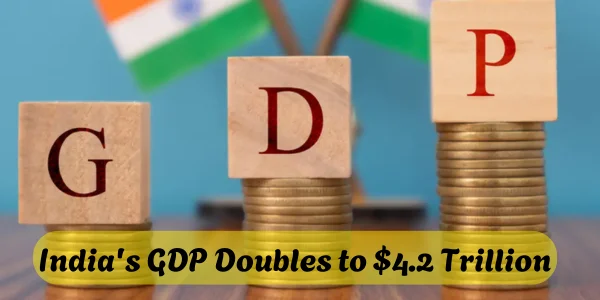Today, India makes a historic leap forward in its financial journey with the introduction of the T+0 settlement system. This move places India among a select group of nations embracing a shorter trade settlement cycle, marking a significant milestone in the global stock market arena. Let’s delve into what this means for investors and brokers alike.
So, what exactly is the T+0 settlement system? Simply put, it’s a game changer. Unlike the traditional T+1 cycle where trades settle the day after, the T+0 system ensures that trades in shares are settled on the very same day of the trade itself. This means buyers get their shares and sellers receive their funds within the trading day, as reported by ET.

But what about this ‘beta’ settlement system? Think of it as a test run. Exchanges are rolling out this system alongside the existing T+1 cycle in the cash market. During this phase, both settlement cycles will coexist, with same-day settlement available for a selected group of 25 stocks. However, access to this service will be limited to a few chosen brokers, and trading for T+0 stocks will be confined to a specific time window from 9:15 AM to 1:30 PM.
What are the perks of embracing the T+0 settlement system? Well, they’re aplenty. By enabling same-day availability of funds from selling, this system promises to inject a fresh dose of dynamism into the market, thereby enhancing liquidity. Retail traders, in particular, stand to benefit, as prompt fund availability ensures smoother trading experiences. Jimeet Modi, founder of Samco Securities, highlights the importance of this prompt fund availability for retail traders, stressing its significance for the next day’s trading activities. Brokers, too, acknowledge the inefficiencies of the current T+1 settlement cycle and anticipate smoother operations with the shorter settlement cycle.
Key Stocks in India’s T+0 Settlement System: Full List of 25 Securities
| Ambuja Cements | MRF |
| Ashok Leyland | Nestle India |
| Bajaj Auto | NMDC |
| Bank of Baroda | ONGC |
| Bharat Petroleum Corporation | Petronet LNG |
| Birla Soft | Samvardhana Motherson International |
| Cipla | SBI |
| Coforge | Tata Communications |
| Divis Labs | Trent |
| Hindalo Industries | Union Bank of India |
| Indian Hotels Co | Vedanta |
| JSW Steel | |
| LIC Housing Finance | |
| LTMindTree |
But what’s in it for brokers amidst this transformative change? Adaptability is key. For brokers catering to retail clients, efficient financial management will be paramount. The shorter settlement cycle could translate into reduced funding requirements, enabling brokers to release funds earlier as trades settle promptly.
However, challenges lie ahead, particularly for institutional investors, including foreign funds. Unlike retail traders, institutional investors operate on a different scale, necessitating thorough preparation for same-day settlement and exposure to currency risks. Overseas investors will need to navigate through a complex web of intermediaries, including custodian banks, foreign exchange banks, and brokers, to ensure seamless transactions.
India’s journey towards shorter settlement cycles has been marked by steady progress. From T+5 to T+3 in 2002, further reducing to T+2 in 2003, and the recent introduction of the T+1 system in 2021, India has continually strived for greater efficiency in its stock market operations.
On a global scale, while most markets currently adhere to the T+2 stock trade settlement norm, the US is poised to transition to T+1 soon, with the European Union closely monitoring developments. In Asia, while China already offers T+0 settlement, other markets predominantly operate on a T+2 cycle.
As India embraces the T+0 settlement system, it stands at the forefront of innovation in the global financial landscape. This bold step not only underscores India’s commitment to fostering a conducive environment for investors but also sets new benchmarks for financial markets worldwide. As stakeholders adapt to this transformative change, the stage is set for a new era of swifter, more efficient stock market transactions, propelling India into the vanguard of global finance.

